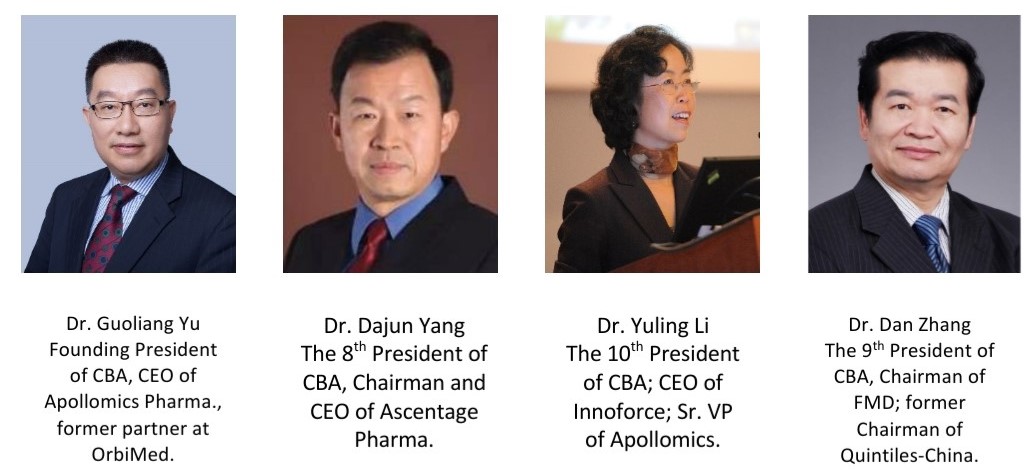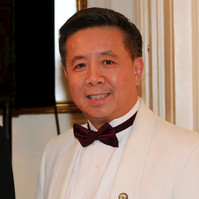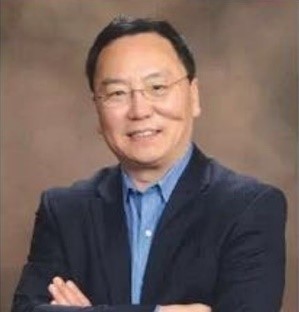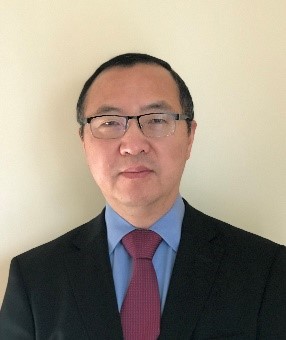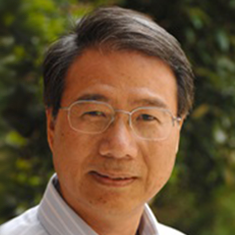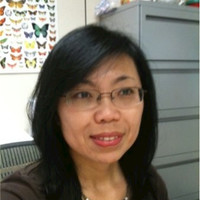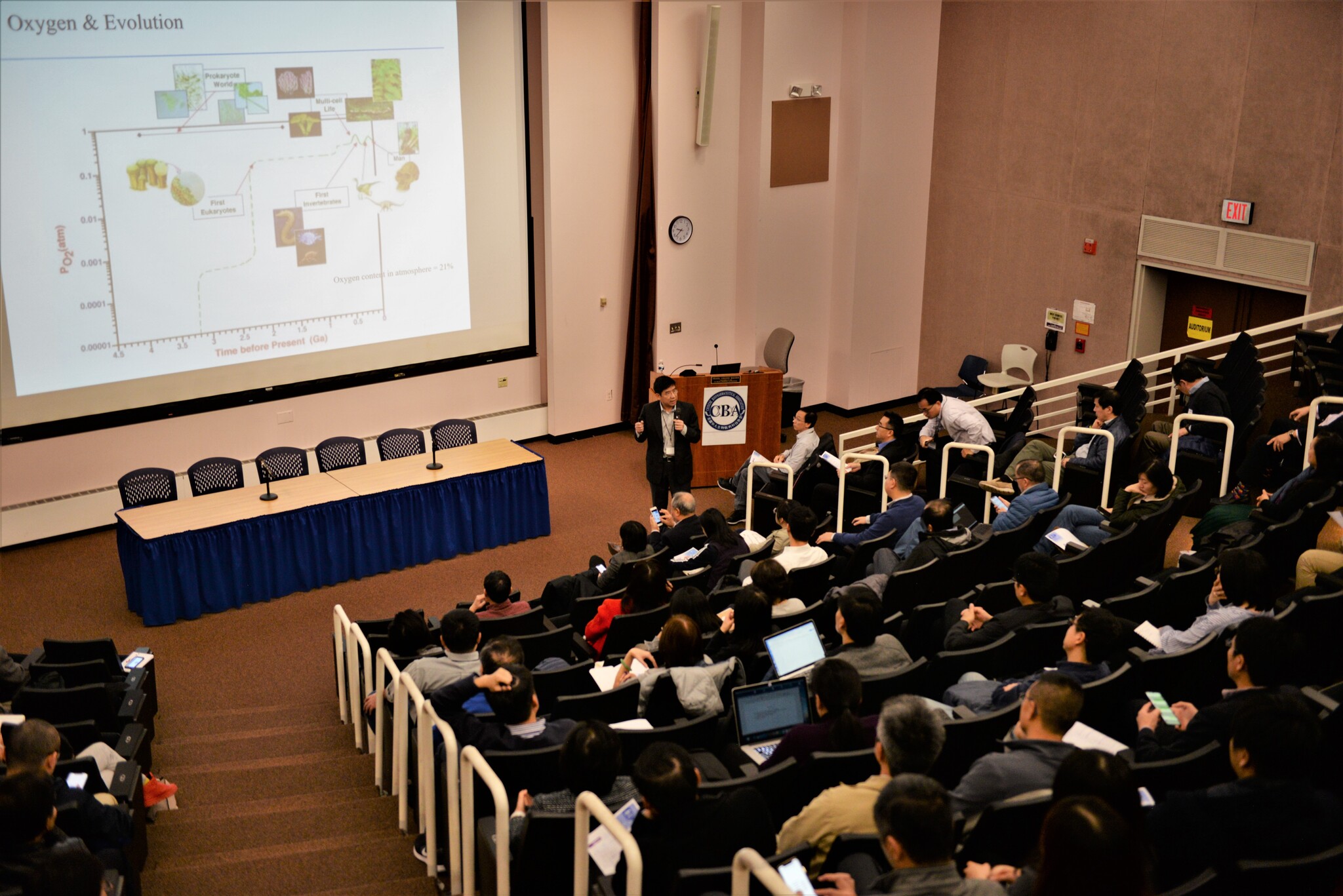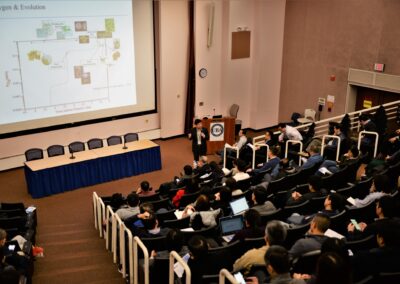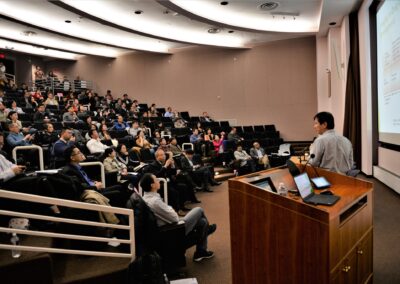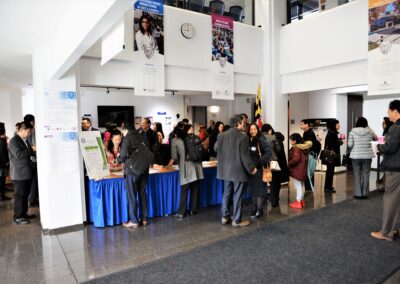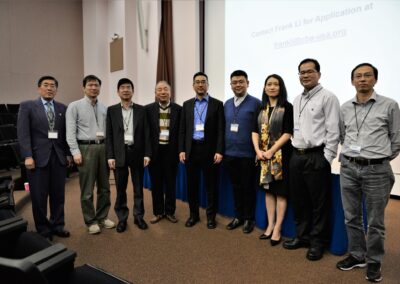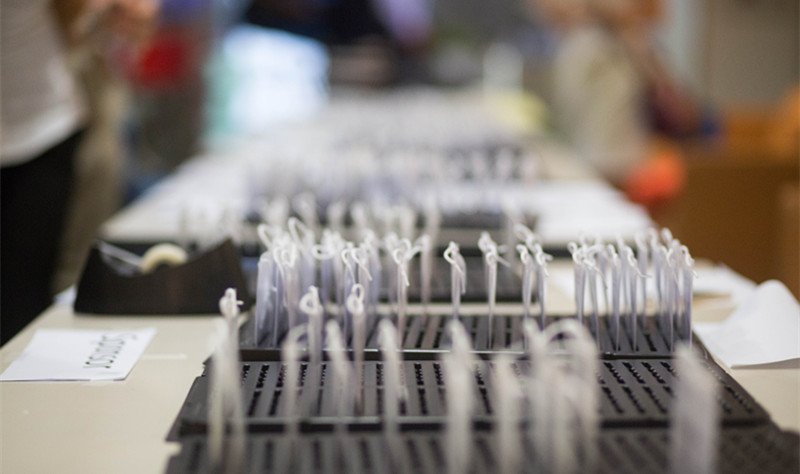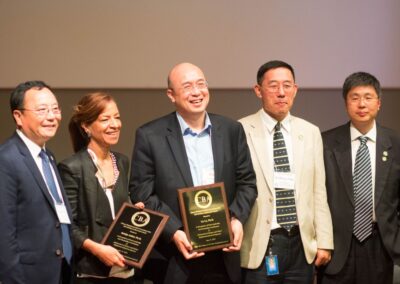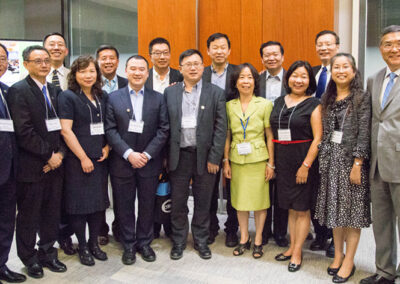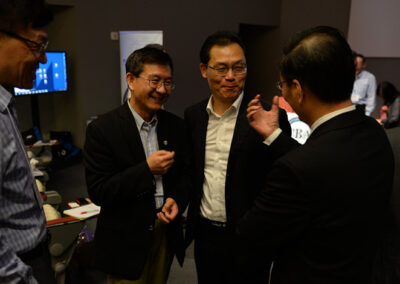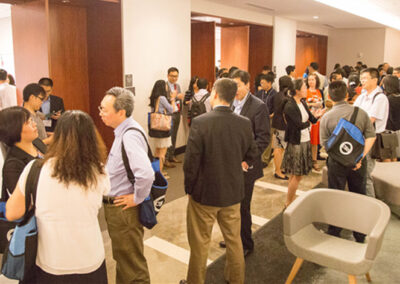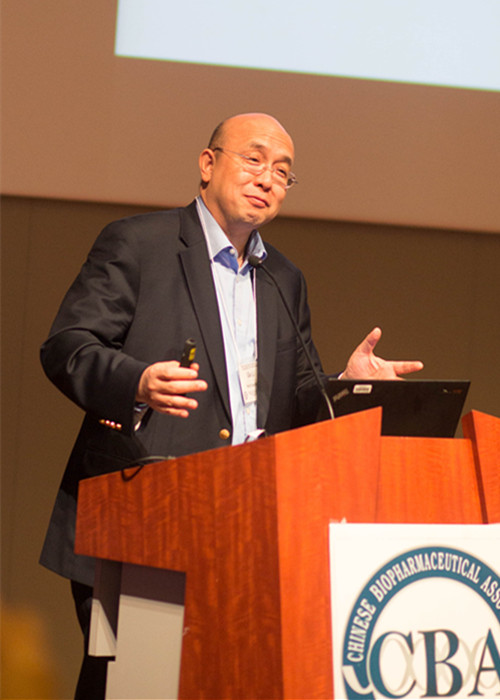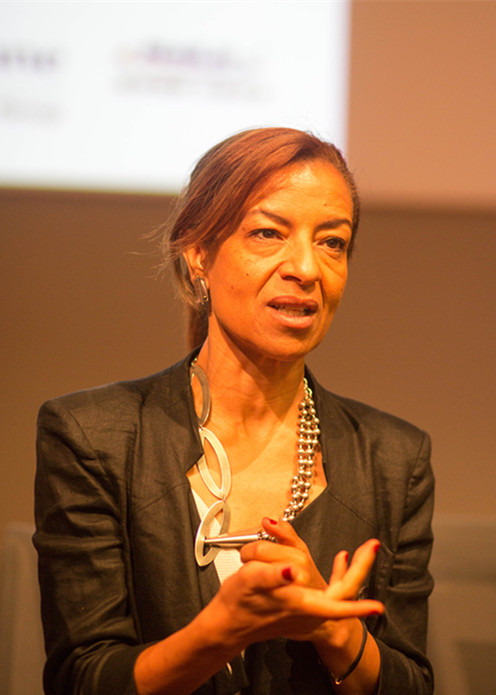CBA 2019 Fall Symposium Ended with Great Success
The long-awaited CBA 2019 Fall Symposium just closed its 1 day event with great success at Johns Hopkins Montgomery County campus on the past Saturday, Nov. 23th, 2019. Hosted by CBA (Chinese Biopharmaceutical Association), this symposium has attracted over 200 attendees to this intensive and very informative event. Speakers invited by CBA came from areas crossing Maryland to Boston, from industry and government representatives, and also patient advocate. Hot topics in biopharmaceutical area were covered and heated discussions were raised between speakers and audience.
This symposium started with the introduction by current CBA president Dr. Chuanhua Julia Xing; she briefly introduced the 24 years history of CBA development and showed different active functional groups as well as very vivid records of their enthusiastic events through the year. Talks in the whole day followed the theme of “The Next Horizon of Precision Medicine, Biomarker Discovery and Biopharma Innovation”, which the Symposium held. The first distinguished speaker is scientist Guangliang Wang, who served as the 1st author and one of the key contributors in 2019 Nobel Prize in Physiology or Medicine. He brought the audience back to the time when he and the Nobel Prize Winner Laureate Dr. Gregg L. Semenza worked very hard to clone HIF-1 (Hypoxia inducible factor-1) and purify the protein. Even it occurred back to over 20 years ago; the vivid description by Dr. Guangliang Wang still provided each audience a very clear picture of their persistence in science. Dr. Wang also talked about how Clinical applications of HIF-1 have robustly developed in recent years in various areas such as anemia resulted from renal disease, cardiac ischemia, pulmonary hypotension and stroke. It was also applied to wound healing and inflammation.
Warren Li, the Director of Oncology Translational Medicine in AstraZeneca gave a talk about “Considerations of Tumor Mutational Burden and other Predicative Biomarkers in Immune-oncology Late Clinical Development” right after the HIF-1 story. He shifted the gear from hypoxia to immuno-oncology field. By addressing how biomarker-driven patient selection remains challenging for immunol checkpoint inhibitors, Dr. Li gave the example of published data of checkmate 227 in NSCLC (Non-Small Cell Lung Cancer), then concluded that TMB (Tumor Mutation Burden) as immuno-oncology predictive biomarkers is a clear proof of concept in NSCLC and some other solid tumor indications, with blood TMB has advantages over tumor TMB but still some potential pending issues. Dr. You Li, the Director of Regulatory Affairs in Thrive Earlier Detection Corp., focused on “Liquid Biopsy in Cancer Diagnostics: Promises and Challenges”, he introduced the concept of “liquid biopsy” and described the current landscape, then rose the question “why cancer liquid biopsy is much more difficult than non-cancer disease”. He shared with audiences the challenges we are facing in the liquid biopsy area and consideration from regulatory authority perspective. Right after this topic, Dr. Zhiyong Xie, the Director of Statistical Learning from Pfizer Inc, who flew to this symposium from Boston, gave a talk on “Deep learning in Digital Biomarker Development”. By reviewing the development of digital biomarker, Dr. Xie highlighted how machine learning will give better diagnosis, quantification and prediction in diseases. With the advanced digital technique applied in medicine, we can foresee more and more goals will be achieved in the near future. The morning section ended by the past president Frank Li by announcing the found of new CBA Clinical and Regulatory Affairs study group (CCRA), he introduced the key members and the work plan for year of 2020.
The afternoon session started with a talk given by the State Senator Susan Lee, which explained the knowledge-based economy strategy of Maryland state, then emphasized on improving commercialization – taking innovation to market. At the end of her talk, she emphasized the policy of Maryland to support bioscience – biotech credit. Aligned with this, Marc Elrich, Montgomery County Executive, further explained the Welcoming and protective place for immigrants in the county, and the natural, geographic and social environment to attract Bio & IT and merge of Bio/IT etc. Lynn Stein Benzion – Director of Business Expansion and Retention and Life Science Lead, showed the detailed local assets in the biomedical field, then shared several success stories of collaborations and technique transfers between government agencies and companies. Local governmental representatives showed very broad interest and warm welcomes to everyone working hard in biopharmaceutical field.
Without a break, Founder and CTO from Pacific Biosciences, Dr. Stephen Turner gave a very passionate talk about how he started his first company. By sharing his own first-hand experiences; Stephen gave the audience a suggestion on how to raise funding for start-ups. Right after his speech, Dr. Wei Cheng, the Investment Director from Beijing Legend Star Investment Management Co, described the story from the other types of funds. As an expert in investment, Wei shared her thoughts about Venture Capital. This whole session provided huge amount of highly needed information for all starters from small biotech companies. The symposium directly went into the third session which first focused on “Differential Biomarker and Treatment strategies for PD-1 pathway blockade-based immunotherapies in China”. This topic was presented by Dr. Sheng Yao, the SVP from Shanghai Junshi /TopAlliance Biosciences. He reviewed the robust development history of this fast growing company and shared their clinical experience and differential strategies for their core product. Dr. Qingsong Zhu, the Chief Operating Officer from Insilico Medicine, talked about “Application of deep learning in biomarker and drug discovery”; then Dr. Wenming Xiao, the Senior Scientific Reviewer from FDA Division of Molecular Genetics and Pathology, gave a speech on “Towards best practice in cancer mutation detection with WGS and WES”. From a regulatory authority standpoint, Dr. Xiao highlighted balance between the profit and the risk, also emphasized a reasonable assurance of safety and effectiveness. The last session was presented by Yiou Wang, a patient advocate of rare disease. Ms. Wang talked about her experience in China about the role of patients and their organizations in rare disease policymaking. She clearly described the short-term goals as “awareness, accessibility, affordability,” and the long-term goals as “institutionalization, innovation, inclusion” for the “The illness challenge foundation”.
This whole day symposium went smoothly and marked as a remarkable success. Chinese biopharmaceutical association, one of the largest Chinese American professional associations in the US (www.cba-usa.org), was founded in 1995. It is an independent, non-political, not-for-profit professional organization, accumulated more than 8000 membership with > 80% having Ph.D degree. The well organized executive team has demonstrated its strong team effort and commitment to the society. Volunteers started preparation for this symposium and worked very hard through months. This Symposium set up the platform for all audience with different background and attracted some of the most influential organizations/companies, thoughtful leaders, scientists, physicians, regulators, investors, and executives from the public and private sectors from both China and the US. With holding this successful event, CBA once again proved its critical role in North America biopharmaceutical area and its high reputation in Asian American community. We believe the whole organization will continue serving the community and bridging the US-China biopharmaceuticals.
